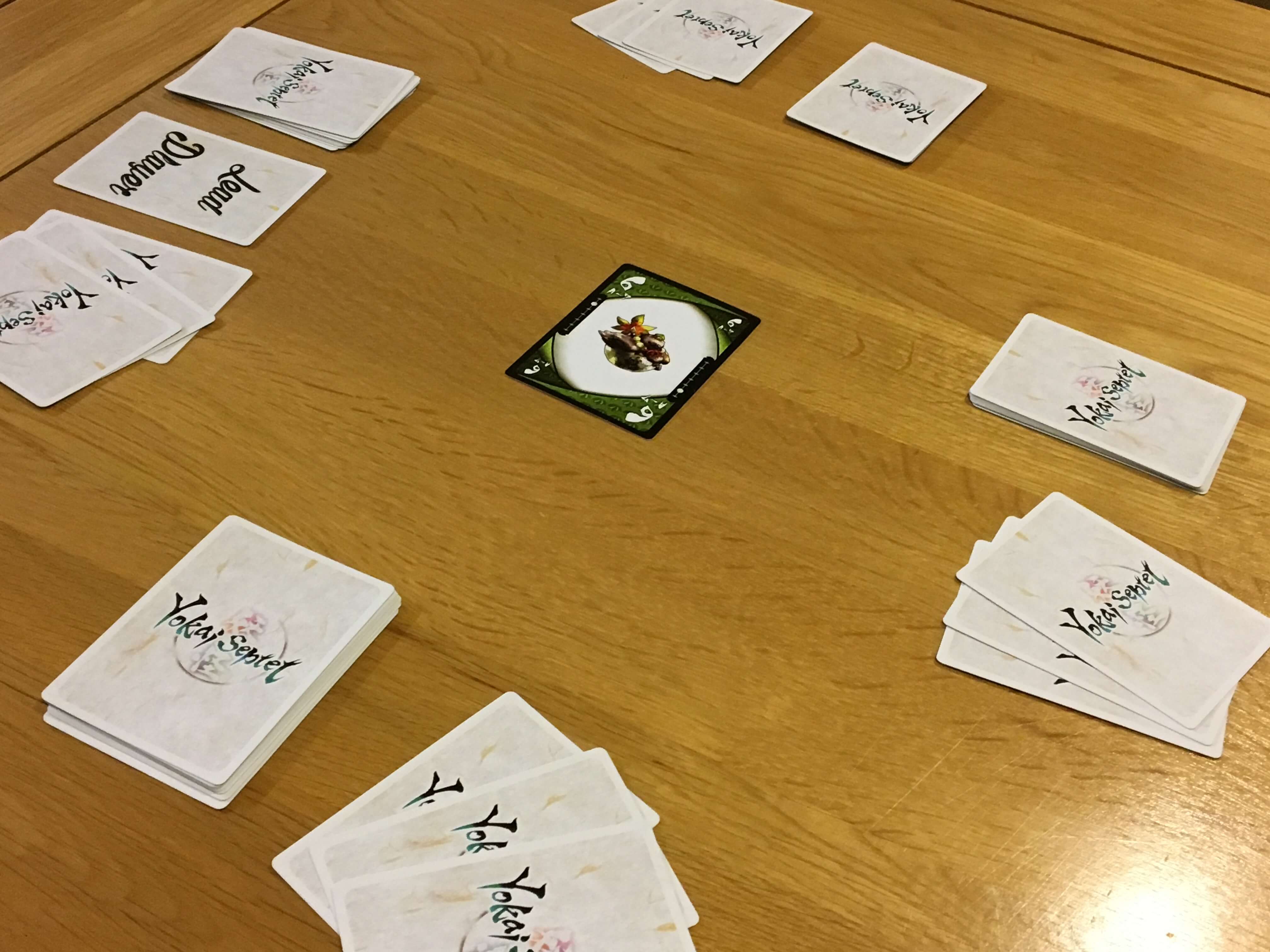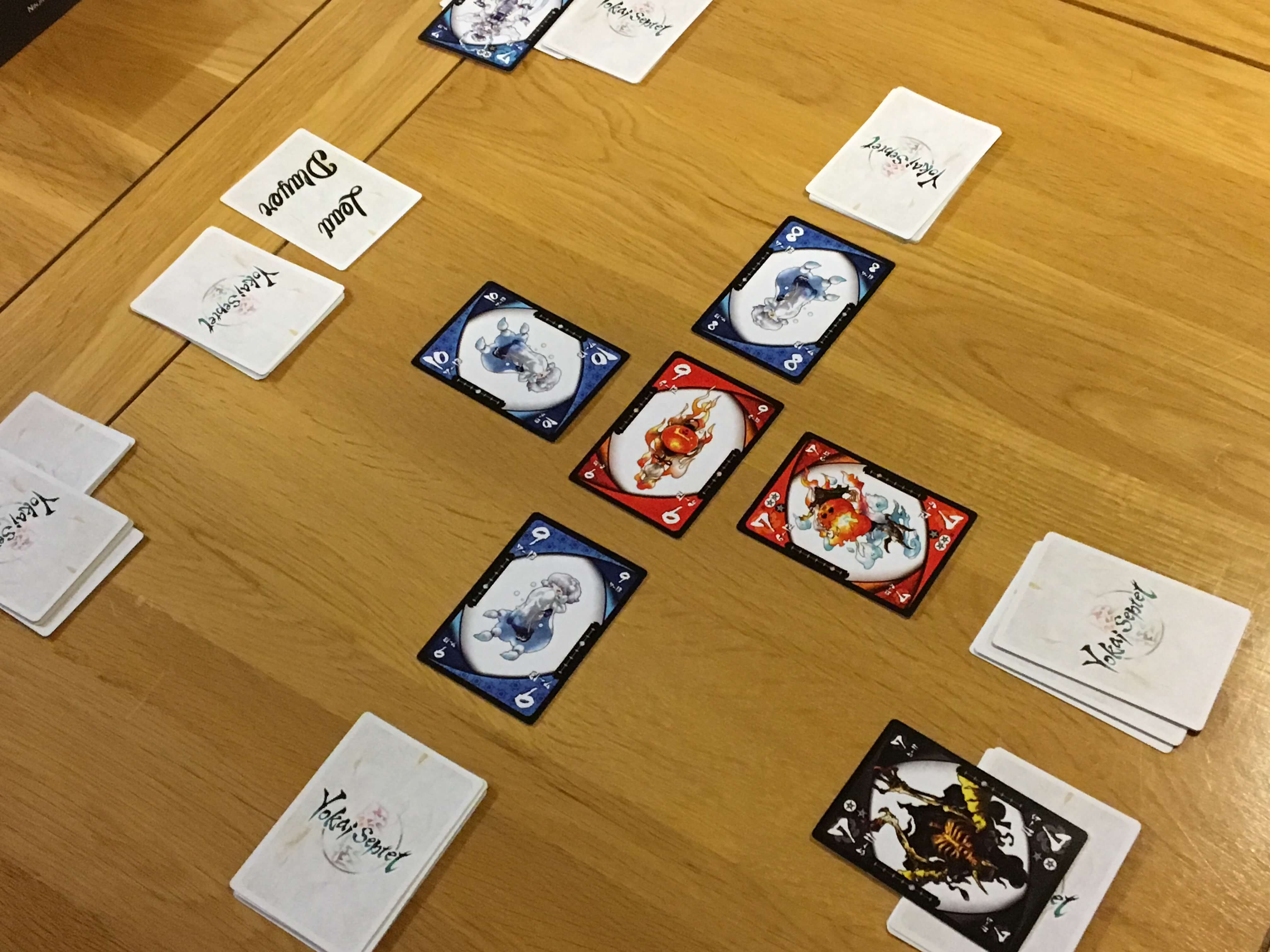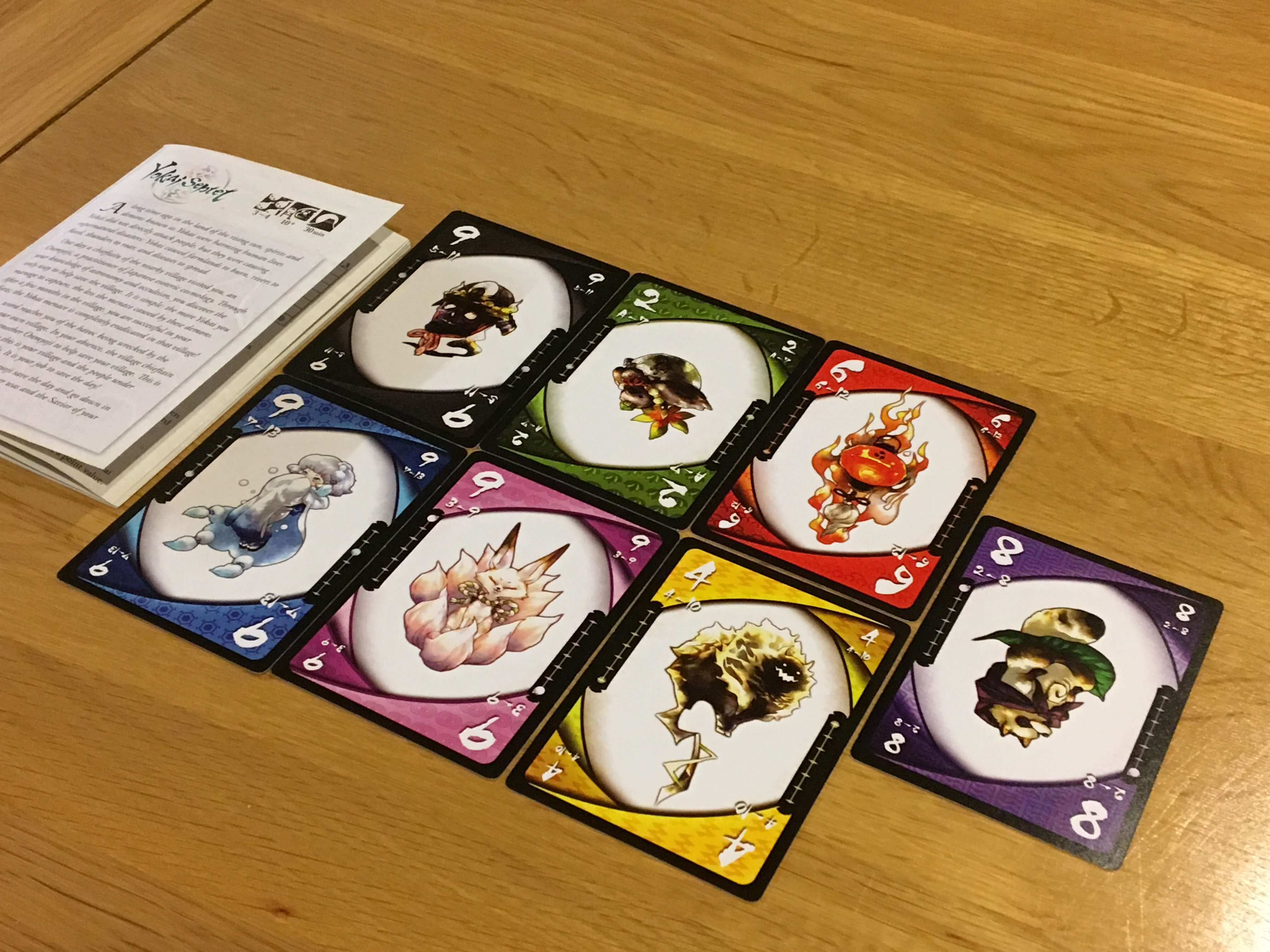Yokai Septet review — Tricky little things
![]()
-
There is no shortage of choice when it comes to trick taking games in board games, but thematic artwork and a subtly different take on the norm can be enough to give some titles the edge. Yokai Septet is a new release from Ninja Star Games that introduces the idea of demons or spirits (as well as the importance of the number seven) to the otherwise fairly traditional team game of whist.
Overview and turn structure
Yokai Septet is played by two teams of two, or for three players, it can be played by three opposing individuals. In either configuration, each player has their own hand of cards that will be more or less powerful based on the numbers shown on the cards, as well as the suit that is acting as the current trump — which will be placed in the middle of the table. Among the forty nine card deck, there is also a single card marked A, which will win any hand.
The aim of Yokai Septet in its default variant is to either win seven hands between a team or two (or five in the three player variant) or to control four of the seven Yokai Boss cards by winning them in tricks. Boss cards are marked — you guessed it — by the number seven, but not all suits feature the same run of numbers, so as the round progresses and players are less able to either follow suit or to trump, higher numbers can still win the day.
Playing Yokai Septet could not be much simpler. The first player in any trick simply places a card in front of them and then the other players must place a card in clockwise order, following suit (or trumping) if they can. Because players sit opposite their partner, there is the option for tactical play – if you know your partner has played a winning card and you can throw in a Yokai boss of the correct suit to secure it, then you should. On other occasions, you may simply have to waste a trump or a high suited card if you fall out of sync with your partner.
The A marked card allows for an automatic win, but playing it first or early in a round can make your opponents throw their cards away. Playing it late, when they have used a high value trump is a good way to disrupt their play. In a subtly different variant to standard play, the players will target points bonuses of zero to two in value on each of the Yokai Bosses. This version is listed as a more complex alternative, but the standard variant is a bit more open, I’d say.

Components
Yokai Septet comes packaged in a small, attractive box with individual manuals in a number of languages. The English translation is flawless and anyone who has played a trick-taking game will pick Yokai Septet up more or less immediately upon reading through the overview. Aside from the manual, the box contains only forty nine cards and a handful of thick, ninja star tokens used to track score in the variant gameplay mode.
The cards, therefore, are the most important component. Thankfully, I’d say that the quality of the production is very high and the artwork of an excellent standard. The Yokai themselves are varied and characterful, with clear colour and design differentiation between each suit and bosses that are obviously from very different schools of Yokai thought — from small, ghostly children to hugely muscled demonic samurai. If I had to criticise anything, I’d say that the actual central artwork could have been larger and the numbering slightly more clear, but it’s a very minor concern.

Game experience
Whilst I have a love and hate relationship with trick taking games in general, the hate side of things usually comes to the fore when designers over complicate what makes the genre appealing in the first place. Where Yokai Septet is concerned, simplicity is key, and I really like how the game pastes a light theme over the top of classic whist style gameplay to great effect. It’s also nice to see the recurring and memorable reuse of the number seven as an important feature – this makes it hard to forget the importance of the Yokai bosses.
It’s possible to teach Yokai Septet in a single hand or two and frankly, anyone who likes normal trick taking games will enjoy it, since it’s not much a of a stretch to add a new rule or two. Interestingly, I’ve also found that players of heavier board games that rarely dabble with traditional card games will be engaged by the artwork and slight uplift in complexity that Yokai Septet offers. You can kind of trick them (excuse the pun) into playing a very traditional card game, disguised as a hip modern card game.

Conclusion
Overall, Yokai Septet is a fun twist on whist and similar games that adds a nice bit of theme that runs throughout both the artwork and the mechanics, whilst also building on the standard trick taking model with a few nice new rules. There’s nothing groundbreaking here, but the less is more approach that Yokai Septet takes means that it achieves a lot considering that it is simply a deck of forty nine cards. Definitely recommended by me and certainly a game that I will be adding to my keep pile of smaller, introductory games.
A copy of Yokai Septet was provided for review purposes, and can be purchased from all good local games stores. For online purchases, please visit Ninja Star Games.

Comments are closed.